Despite public outrage against the war in Ukraine, Western leaders must “maintain clarity and message discipline” on their approach to the crisis, argues Constanze Stelzenmüller. Moreover, they should convey to the Russian people that it is Vladimir Putin who is the enemy. This article originally appeared in the Financial Times.
During major international championships, Germany — as a popular saying has it — is home to 82 million football trainers. (This columnist prefers basketball.) In the pandemic, it was a nation of impassioned virologists. Since the beginning of the Kremlin’s war against Ukraine in late February, it seems that every German has become an expert on irregular warfare against Russian tanks.
But then the country is being rocked by a seismic shift not seen since the fall of the Berlin Wall and the demise of the Soviet Union more than 30 years ago.
As it became clear that Russian President Vladimir Putin would make good on his threats against Ukraine, chancellor Olaf Scholz had already suspended the controversial gas pipeline project Nord Stream 2, and announced that Berlin would send arms to Ukraine. Three days after the invasion, he said in a historic speech that Germany would now fulfill its promise of spending 2% of its gross domestic product on defense, accelerate the move away from dependence on Russian energy, build two new liquid natural gas terminals, buy armed drones, commit to nuclear participation, and send more troops to reinforce NATO’s eastern flank. One observer tweeted that “Germany’s foreign policy sacred cows are now a steaming pot of Rindergulasch” or beef stew.
The impact on public opinion in a nation with a deserved reputation for endemic caution and a propensity to outsource security risks and costs to its neighbors and allies has been nothing short of astonishing. Scholz’s popularity jumped by 13%. Ninety percent of those polled say Russia is untrustworthy. Eighty percent say Berlin’s actions are appropriate, or should be even tougher. Two-thirds support his decisions — even if Germany suffers energy shortages, inflation or damage to companies. Four-fifths say NATO matters to secure peace in Europe.
This wave of support is proof of what firmness of thought, speech and action in a leader can achieve. Also, if you want to make millions of horrified Germans give up pacifism, it’s hard to conceive of a more effective combination of triggers than invading a sovereign nation, committing atrocities against civilians, unleashing a wave of refugees on a scale not seen in Europe since the 1940s, threatening to use nuclear weapons, shooting up nuclear power plants, and calling a Jewish president of Ukraine a Nazi. Putin has done all of these things since February 24.
Yet in all this lies an immense danger. As CIA director William Burns testified in the U.S. Congress last week, an “angry and frustrated” Putin is “likely to double down,” meaning that Ukraine might be in for an “ugly next few weeks.” Even if the worst does not come to pass, and Moscow and Kyiv decide to seek a negotiated truce, the hardest decisions for the West are yet to come.
How to protect Ukraine? Would a faster transition away from Russian energy imports, or further weapons deliveries to Ukraine, or a real crackdown on oligarch assets in the west, deter the Kremlin or at least constrain its choices?
How to protect the trans-Atlantic alliance against Putin’s repeated maximalist demands? Should it move swiftly to deploy troops permanently along NATO’s eastern flank? Station intermediate-range missiles in response to Russian Iskander batteries in Kaliningrad? Should it perhaps even contemplate a European nuclear deterrent?
And what if Putin escalates, using chemical or nuclear weapons?
The stress is beginning to show. Western policymakers have been at odds over proposals to bring Ukraine into the European Union; to give Kyiv Polish MiG fighter planes; to cut off Russian energy immediately; or to establish a no-fly zone over Ukraine, which would mean bombarding Russian air defenses in Russia and make NATO a combatant.
Public anger, amplified by social media, risks pushing leaders into hasty decisions when they should be thinking soberly and prudently. So a key challenge in what could be fateful weeks ahead will be for Scholz and his peers to maintain clarity and message discipline: explaining what we can and cannot do; that there will be a price for standing up for Ukraine and against Putin; and that in doing so we will also be standing up for ourselves.
As for Russians living among us, they must be protected against bullying and hate. To those living in Russia, we should say (whether via short wave radio, low-orbit satellite communications, or the Dark Web): our quarrel is solely with the war criminal in the Kremlin and the cronies that enable him. You are not our enemy. But Putin is. And he is yours as well.
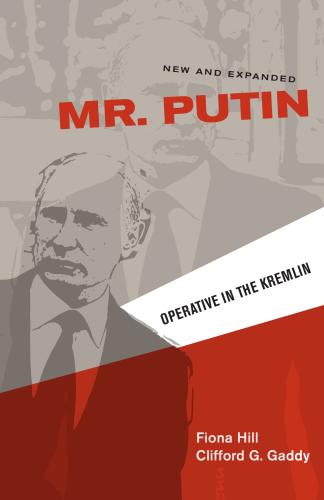
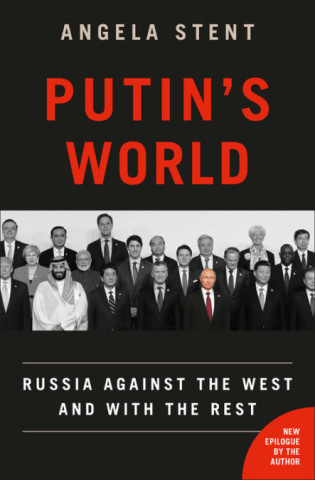
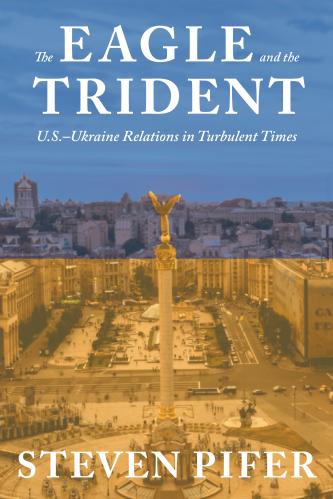
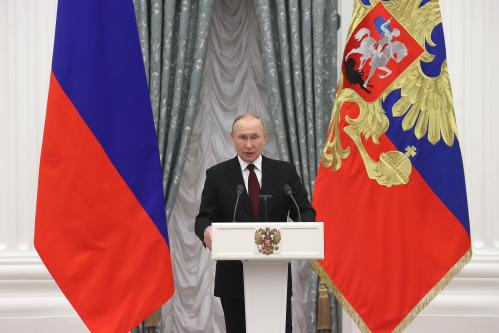
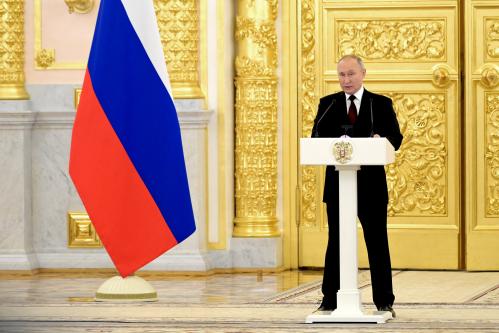




Commentary
Western leaders must be honest about what it takes to stand up to Putin
March 21, 2022